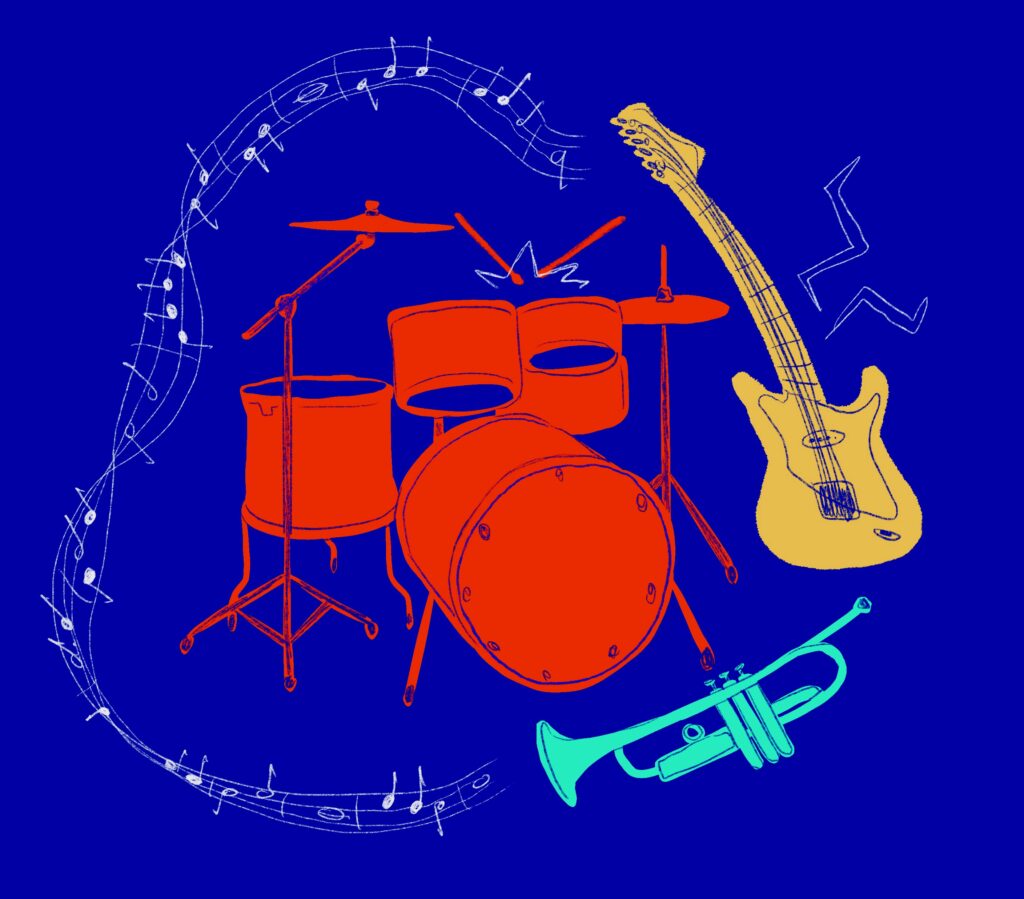
Zelda Reif
With the recent excitement surrounding multi-year stadium tours like Beyoncé’s Renaissance tour and Taylor Swift’s Eras tour, concerts are commonly associated with extravagant light shows in massive arenas. However, small shows in basements or clubs have long been a way to showcase up-and-coming artists in an intimate setting.
“I’ve been to big shows and smaller shows, [and] I feel like, at smaller shows, the artists are more connected to the audience,” said senior Nathan Yin. “There’s a sense of community in this region, [since] a lot of these small bands are from … San Mateo county.”
Fans of smaller, more intimate shows also emphasize how larger concerts can feel less lively and connected. “The atmosphere isn’t something you can replicate in larger venues,” Yin said. “At hardcore gigs, you see stage diving, moshing and crowd-surfing. In stadiums, most of the time you’re sitting in a seat far from the band. It’s just a different experience.”
Those who enjoy local shows also emphasize their communal nature.
“It’s definitely a select group of people you meet there, but the people are really nice and all want to make friends,” said junior Audrey Yanez. “I went to a jazz concert with my friends, and I thought it would just be … jazz, but everyone was super friendly and talkative, and looking to meet new people. I went to one on Halloween … everyone wore costumes.”
The atmosphere isn’t something you can replicate in larger venues”
Attendees of smaller concerts also value a more personal connection to the performer, due to the less chaotic and overwhelming nature of smaller crowds.
“Definitely at smaller shows the artists are a lot more aware that you’re there,” said junior Sarah Klein. “When you’re one in a crowd versus one in twenty, the smaller one ends up being a lot more personal.”
From the perspective of performers, smaller shows can also be impactful as they allow for an opportunity to connect to a small group of people while still seeing appreciation for their music.
“Personally, I don’t go to too many local shows, unless it’s something I’m a part of,” said senior Dane Kenyon. “I have performed at some small concerts through a program I’m in. I think at those you can interact with the crowd more and it’s a lot cooler.”
The people found at smaller shows are often brought there by connections; since these shows are not at a scale where they can be mass-advertised, attendees find them through word-of-mouth from friends in the scene.
“I think most people get into concerts because they know someone else,” Yanez said. “The most recent one I went to, I only got in because I knew someone there. I also went to one because my friend knew people in [the performers] band and he got invited through connections he made.”
“If you don’t have connections it’s not gonna work”
However, many in the music scene find relying on connection to be a roadblock.
“If you don’t have connections it’s not gonna work,” said senior Chance Hubbard. “[To find shows], you have to network and put yourself out there and be vulnerable, there’s no other way.
Shows can reach outside of San Mateo, and span genres.
“I used to be really into the punk scene, because the scene in the East Bay is huge,” Hubbard said. “I also go to lots of shoegaze shows, which are also really big in Berkeley, Oakland … all over the bay.”
For Aragon students, small concerts offer unique opportunities to make new friends and join communities they may not have otherwise been exposed to.




